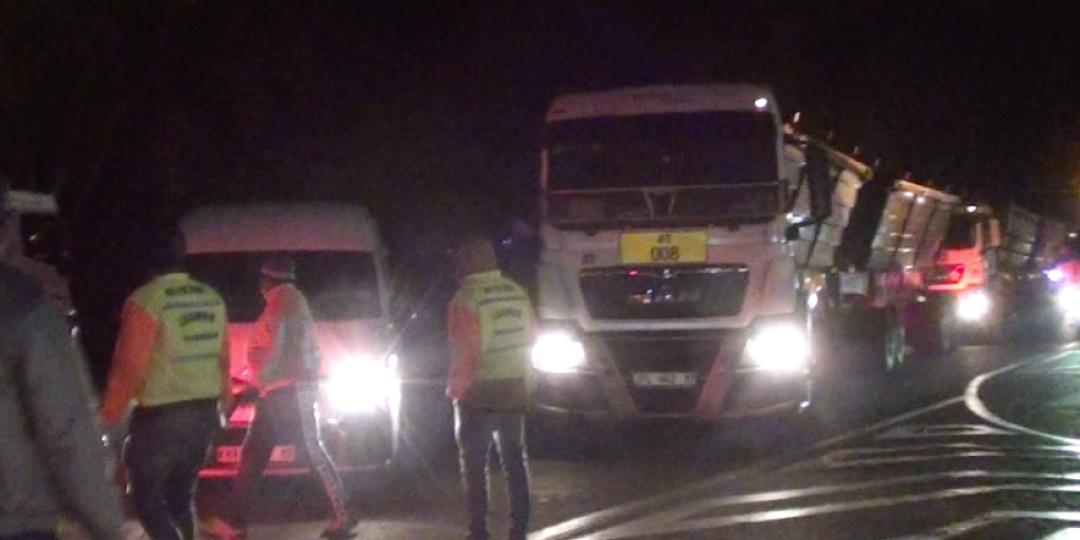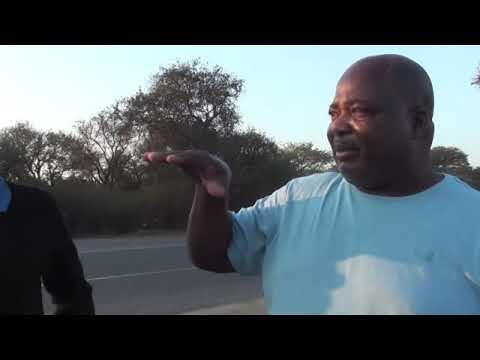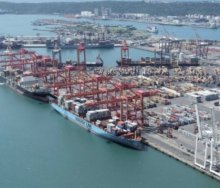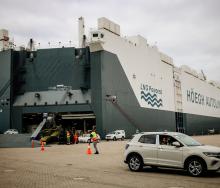The Komatipoort Business Chamber (KBC) has issued a strongly worded statement against "the despicable failure of the State to exercise effective traffic management" of ore-carrying trucks bottlenecking at South Africa's Lebombo border into Mozambique.
According to the chamber's chairperson, Jan Engelbrecht, the statement was issued after the latest high-level meeting between public and private-sector executives about the cross-border congestion stemming from increased freight flowing to the Port of Maputo.
This morning, 11 July, traffic control by various taxi associations using the N4, continues to provide a semblance of law and order, especially at night when traffic officials withdraw from the highway because of not getting paid overtime and fearing for their lives.
He said that although it's not ideal to have taxi bosses as an after-hours alternative, "it helps!"
"But it's not a long-term solution."
Referring to an incident last Friday night (read the report) when a truck driver pulled a firearm because he apparently felt threatened by taxi marshals, Engelbrecht said: "What if that had led to someone getting shot?"
Against this backdrop of fear, frustration and intimidation, which had resulted from the inability of authorities to facilitate trade on the busy Maputo Corridor, the statement serves as public condemnation for the situation that has developed on the small community's doorstep.
"The marshals and taxi associations have assumed the role that the State fails to fulfil, and to the shame of the State attained what the State has been requested to do,” the statement says. –
Engelbrecht stressed that the present situation is neither condoned nor is its continuation advocated for.
He reiterated what is contained in the KBC statement, that the risk of having taxi marshals acting as law enforcers "may at any moment spiral out of control."
A taxi official representing JNB Taxi Association (TA) and Joburg and Maputo TA, Thomas Malwane, said they decided to get involved because at night when trucks skip the days-long queue in a desperate 'dash' for the border, the ensuing congestion renders the road impassable.
In the absence of official law enforcement, with only a few police officers brave enough to man the crime-ridden area close to the border's control zone gate, commuters get robbed and raped, he said.
"People are too scared to use taxis," Malwane said.
"At the end of the day, it's killing our business."
One mob element deserves special mention – The Challengers, a heavily armed gang that comes through at night from Ressano Garcia on Mozambique's side of the border, preying on people stuck in the queue.
"You don't want to mess with them," a law enforcement expert and anonymous source told Freight News.
"They'll drag you into the nearby bush and take you out. They've been known to kidnap drivers waiting in the queue, demanding ransom from their employers and aren't scared to maim and murder if they don't get what they want."
Another taxi official, Salvador Macamo, founder and owner of the Vaal Maputo TA, said if trucks are found skipping the queue, they are turned around and sent to the back of the line.
“All we want is for the road to be kept open,” he said.
Engelbrecht agrees. He said transporters and their drivers must understand that although the current waiting time at the border is intolerable, often taking trucks 48 hours or more before crossing into Mozambique, truckers have no right to congest the road by skipping the queue.
In an earlier interview with Freight News, Engelbrecht mentioned that the drivers, left to their own devices because of derelict law enforcement, seek safety in numbers by physically closing ranks at night.
The KBC statement says there is an "immediate need for effective traffic management by the traffic department on the N4 at the border gate3, the Komatipoort area, Hectorspruit, and Malane."
It asks, among other things, for the 24-7-365 "deployment of enough staff to effectively manage a single-file stacking of trucks for a distance of up to 28km" from the border.
In addition, it advocates for "effective law enforcement, arrests where double barrier lines are crossed", and the "strict application of a policy of no corruption and no bribery by the deployed staff".
- Further reporting on this matter to follow in the oncoming days.
Watch our interview with the taxi officials mentioned in this report: https://youtu.be/ehXQpvL5FXY














